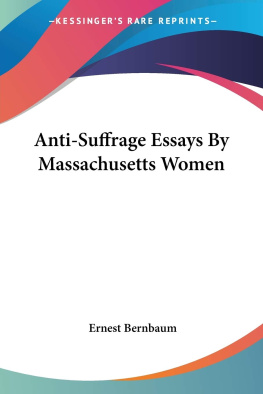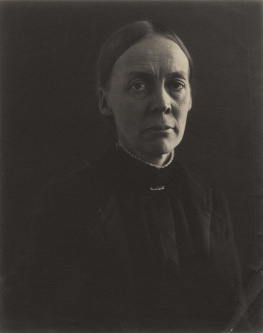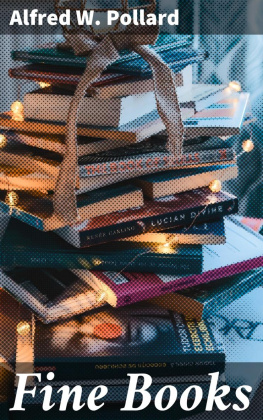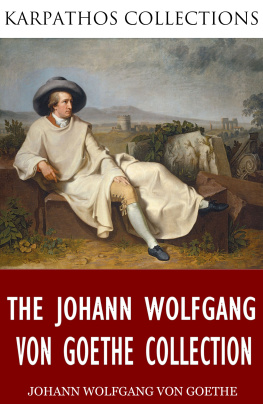MASSACHUSETTS WOMEN
WITH AN INTRODUCTION
BY
ERNEST BERNBAUM, Ph.D.
(Harvard University)
THE FORUM PUBLICATIONS
OF BOSTON
1916
Copyright, 1916, by
J. A. HAIEN
All Rights Reserved
Gratefully Dedicated
to the 295,939 Massachusetts Men
Who, on Election Day, 1915
Endorsed the Anti-Suffrage Sentiments
of the Women of Massachusetts
INTRODUCTION
THE ANTI-SUFFRAGE VICTORY IN
MASSACHUSETTS
The essays in this little book are by anti-suffrage women who were prominent speakers, writers, and organizers, in the campaign of 1915. They voice sentiments which gained the largest measure of popular support ever accorded in the history of Massachusetts politics.
The largest number of votes any political party polled in Massachusetts before 1915 was 278,976. The anti-suffragists polled 295,939. Since 1896 there has been but one instance in which the voters gained a plurality amounting to 110,000 votes. The anti-suffragists won by 133,447 votes. Alton B. Parker's defeat by Theodore Roosevelt in 1904 is commonly regarded as typifying political annihilation; but the suffragists in 1915 did not poll as many votes as Mr. Parker, and the anti-suffragists polled 38,000 more than President Roosevelt at the height of his popularity. Such outworn words as "overwhelming" and "landslide," which have been regularly used to describe victories not half so great as this, understate the actual extent of the anti-suffrage triumph. The pronounced aversion which Massachusetts showed towards Horace Greeley in the presidential campaign of 1872, and towards William J. Bryan in that of 1896, scarcely exceeded that which she feels towards the suffragists today.
The grounds of this aversion are so numerous that it is difficult to determine which of the many causes of the anti-suffrage victory were the most powerful. In my opinion, however, Massachusetts men defeated woman suffrage chiefly because (1) they discovered that nine women out of ten did not want to vote; (2) they knew that the creation of a large body of stay-at-home voters would result in bad government; and (3) they grew disgusted with the temperament, the notions, and the methods typical of the few women who clamored for the vote.
For at least two generations suffragists have been spending a huge amount of energy and money in spreading their doctrine. Contributions, mainly drawn from a few rich women, have enabled them to send professional speakers into every district of the state, to distribute tons of "literature," to supply the press with a constant stream of "news" written from their point of view, and in general to advertise their claims in the most lavish way. A propaganda so subsidized would have been successful decades ago if sound principles and common sense were on its side. But to their consternation the suffragists found that the vast majority of Massachusetts women turned a deaf ear to their plausible appeals, and that their strongest opponents were those of their own sex.
Suffragists continued to talk about what "we women" want. But men presently began to see that these women had no right to pretend to represent their sex. Even their own claims as to the number of women supporting them showed that they represented only between 5% and 10% of the women of Massachusetts. At least 90% of the womeneither by open opposition, or by a marked indifference to the subjectshowed that they did not believe in woman suffrage. It became obvious that no general statement could be more emphatically true than that Massachusetts women did not want to vote.
When this truth was insistently pressed upon the suffragists, they were apt to call the indifferent women "unenlightened." This was felt to be an insult rather than an explanation. The average Massachusetts man does not think his mother, wife, and sister "unenlightened"certainly not on the suffrage question. She has heard and read the suffrage notions again and again. He knows that if she felt that man was her oppressor, or that the welfare of herself or her family would be increased by her enfranchisement, she would say so. She is a sensible, observant woman, who knows what she wants, does not hesitate to ask for it, and usually gets it. But she was not asking for the ballot. It did not take her long to see through the suffrage fallacy that "only those women would need to vote who want to." She realized that the vote would mean an obligation as well as a privilege, and that she could not honorably accept the privilege without undertaking the obligation. Her life being already crowded with duties that only she could discharge, she would not add to them one that her husband, brother, or son can discharge at least as well.
If any man wondered whether his personal inquiries among the women of his acquaintance gave a sufficiently broad basis for the belief that women did not want to vote, he became convinced of the fact when he learned about the Drury bill of 1913. This bill would have given Massachusetts women a chance to vote "Yes" or "No" on woman suffrage. The proposal resulted in the amazing revelation that the suffragists were afraid to let women vote on the question. They worked against the bill because they knew that an official count would disclose how pitiably small a fraction of women were on their side. They thought that their little group, by noisy publicity, could be made to appear a considerable number. But the men, when they discovered who opposed the Drury bill, were not deceived. They saw that a small minority of women was trying to induce them to coerce the great majority. They awoke to the fact that the suffragist's demand was not that men should grant women an expressed desire, but that men, contemptuously disregarding the evident wishes of women, should force upon them a heavy responsibility.
The nature of that responsibility brings us to what seems to me the second important cause for the suffrage defeat. Menmore than politically inexperienced women,know that good government depends upon the willingness of the electorate to do its duty vigilantly and regularly. The greatest good of the greatest number of classes (including the women and children in each class) can be secured only when a large proportion of the eligible voters vote. Those voters who are led by bosses, or by selfish interests, go to the polls steadily. Their influence can be offset only when the rest of the electorate goes likewise. The results of elections in which a small proportion of the eligible voters take part, are poor laws and incompetent or corrupt government. The leading political issuesthe tariff, trusts, transportation, military and police force, taxation, finance, etc.bear directly upon the work of men in their trades and business, and under male suffrage a fairly large proportion of the vote is cast. The life-work of women removes them from contact with these political questions, and the nature of most women is not attracted by the contentious spirit in which political warfare is conducted. As long as no more than 10% of the women took an interest in the woman suffrage question itself, no man could reasonably expect them to be otherwise than indifferent to the regular subjects of political conflict. To impose political duties upon the sex against its will was simply to create conditions that encouraged corrupt and feeble government. The soundness of this principle was, furthermore, being demonstrated in woman-suffrage territory, such cities as Seattle and such states as Colorado showing that sooner or later a neglectful electorate leads to the downfall of good government.





